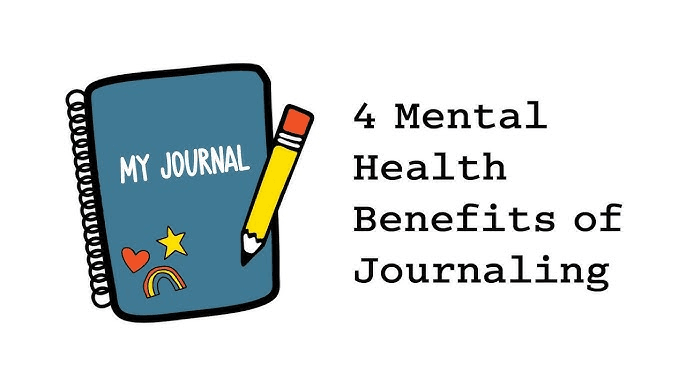

Journaling has long been recognized as a powerful tool for promoting mental health and well-being. Let’s learn more about this topic below with Eggy Car, as we explore the numerous advantages of this simple yet effective practice.
Journaling is more than just putting pen to paper; it’s a therapeutic practice that allows individuals to express their thoughts, emotions, and experiences in a safe and private space. This act of self-reflection and self-expression can have profound effects on mental health, providing a constructive outlet for processing complex feelings and navigating life’s challenges. By engaging in regular journaling, people can gain valuable insights into their inner world, identify patterns in their thoughts and behaviors, and cultivate a greater sense of self-awareness.
The beauty of journaling lies in its simplicity and accessibility. Unlike many other mental health interventions, journaling requires minimal resources and can be practiced anytime, anywhere. Whether you prefer to write in a traditional notebook or use a digital platform, the act of journaling can easily be incorporated into your daily routine. This flexibility makes it an ideal self-care practice for people of all ages and backgrounds, from busy professionals to students and retirees.
As we delve deeper into the benefits of journaling for mental health, it’s important to note that this practice is not a one-size-fits-all solution. Different journaling techniques and approaches may resonate more with certain individuals, and it’s essential to find a style that feels comfortable and authentic to you.
Some people may prefer structured journaling prompts, while others might opt for free-form writing or even visual journaling through sketches and doodles. The key is to approach journaling with an open mind and a willingness to explore your inner landscape.
One of the most significant benefits of journaling for mental health is its ability to promote emotional regulation and reduce stress. In our fast-paced, often chaotic world, it’s easy to feel overwhelmed by the constant barrage of thoughts and emotions we experience throughout the day. Journaling provides a dedicated space to pause, reflect, and process these internal experiences, allowing us to gain a clearer perspective and maintain a sense of balance.
When we write about our emotions, we externalize them, creating a degree of distance between ourselves and our feelings. This distance can help us approach our emotions more objectively, making it easier to understand and manage them effectively. By regularly engaging in this practice, we can develop greater emotional intelligence and resilience, equipping ourselves with valuable tools for navigating life’s ups and downs.
Moreover, the act of journaling itself can be a calming and meditative experience. As we focus our attention on the act of writing, we enter a state of mindfulness, temporarily disconnecting from external stressors and centering ourselves in the present moment. This mindful practice can help reduce anxiety, lower blood pressure, and promote overall relaxation. Many people find that incorporating journaling into their bedtime routine can improve sleep quality by providing a constructive way to release worries and clear the mind before rest.
Journaling can be particularly effective in challenging and transforming negative thought patterns. When we experience difficult emotions or face challenging situations, it’s common for our minds to spiral into negative self-talk or catastrophic thinking. By writing these thoughts down, we can begin to recognize them for what they are – often exaggerated or irrational beliefs that don’t accurately reflect reality.
Through journaling, we can practice cognitive restructuring, a technique used in cognitive-behavioral therapy to identify and modify unhelpful thought patterns. By questioning our negative thoughts on paper, exploring alternative perspectives, and seeking evidence to support or refute our beliefs, we can gradually shift our thinking towards more balanced and constructive patterns. This process can be incredibly empowering, helping us break free from self-limiting beliefs and cultivate a more positive outlook on life.
Regular journaling can serve as a powerful tool for self-discovery and personal growth. As we consistently document our thoughts, feelings, and experiences, patterns and themes begin to emerge, offering valuable insights into our personality, values, and aspirations. This increased self-awareness can be transformative, helping us make more informed decisions, set meaningful goals, and align our actions with our true desires.
Journaling also provides a unique opportunity for reflection and evaluation. By periodically reviewing our past entries, we can track our progress, celebrate our achievements, and identify areas for further growth. This reflective practice can boost self-esteem and motivation, as we recognize how far we’ve come and the challenges we’ve overcome. It can also help us learn from our experiences, allowing us to make more conscious choices and avoid repeating past mistakes.
Furthermore, journaling can be a powerful tool for exploring our creativity and unleashing our imagination. Through free writing exercises or creative prompts, we can tap into our subconscious mind, uncovering hidden talents, innovative ideas, and unique perspectives. This creative exploration can be particularly beneficial for mental health, as it provides a constructive outlet for self-expression and can foster a sense of purpose and fulfillment.
One particularly effective journaling technique for enhancing mental health is the practice of gratitude journaling. By regularly documenting the things we’re thankful for, no matter how small, we train our minds to focus on the positive aspects of our lives. This shift in perspective can have profound effects on our overall well-being, boosting mood, reducing symptoms of depression and anxiety, and improving our relationships with others.
Gratitude journaling doesn’t have to be complicated or time-consuming. Simply jotting down three things you’re grateful for each day can make a significant difference in your outlook and mental state. Over time, this practice can rewire your brain to naturally notice and appreciate the good things in life, leading to increased happiness and life satisfaction.
While journaling is often viewed as a solitary activity, its benefits can extend far beyond the individual, positively impacting our relationships and communication skills. By regularly expressing our thoughts and feelings on paper, we become more adept at articulating our needs, desires, and boundaries in our interactions with others. This increased self-awareness and emotional clarity can lead to more authentic and meaningful connections with friends, family, and romantic partners.
Journaling can also serve as a valuable tool for conflict resolution and relationship repair. When we’re facing difficulties in our relationships, writing about our feelings can help us process our emotions and gain perspective on the situation. This can prevent us from reacting impulsively in the heat of the moment and instead approach conflicts with greater understanding and empathy. By exploring different viewpoints and potential solutions in our journal, we can prepare ourselves for more constructive conversations and find creative ways to resolve disagreements.
Moreover, journaling can help us cultivate empathy and compassion, both for ourselves and others. As we delve into our own experiences and emotions, we develop a deeper understanding of the human condition, recognizing that everyone faces struggles and challenges. This increased empathy can translate into more supportive and understanding relationships, fostering a sense of connection and community.
For those engaged in therapy or counseling, journaling can serve as a valuable complement to their treatment. Many therapists encourage their clients to keep a journal between sessions, as it provides a continuous outlet for self-reflection and emotional processing. Journaling can help clients track their progress, identify triggers for negative thoughts or behaviors, and prepare topics they’d like to discuss in their next session.
Additionally, journaling can help individuals maintain the insights and strategies gained in therapy, reinforcing positive changes and supporting long-term growth. By regularly reflecting on their therapeutic journey, individuals can take a more active role in their mental health care, leading to more sustainable and meaningful improvements in their well-being.
As we conclude our exploration of the benefits of journaling for mental health, it’s clear that this simple practice can have far-reaching effects on our emotional well-being, personal growth, and relationships. Whether you’re looking to reduce stress, gain clarity on your goals, or simply express yourself more freely, journaling offers a flexible and accessible tool for improving your mental health.
Remember, there’s no right or wrong way to journal – the most important thing is to find a method that resonates with you and to approach the practice with consistency and an open mind. By dedicating even a few minutes each day to putting your thoughts on paper, you’re investing in your mental health and paving the way for a more balanced, fulfilling life. So why not grab a pen and notebook, or open up a digital document, and start your journaling journey today?